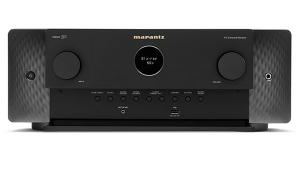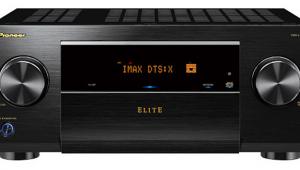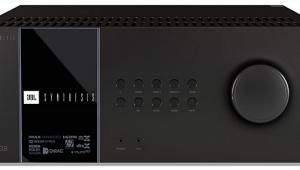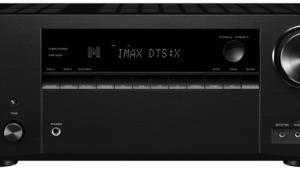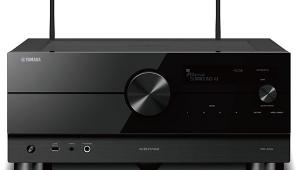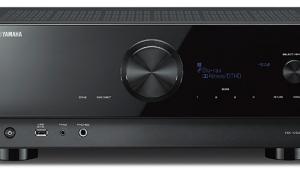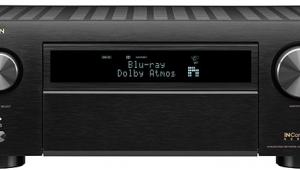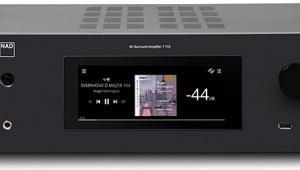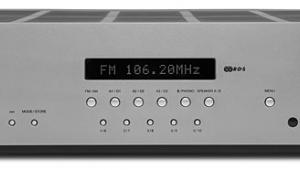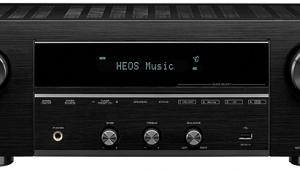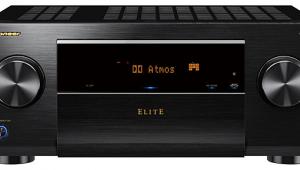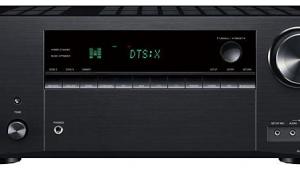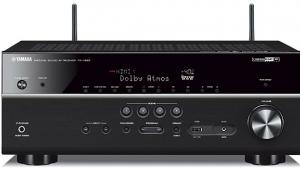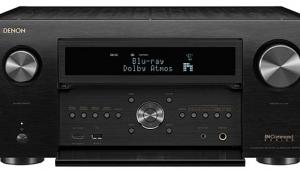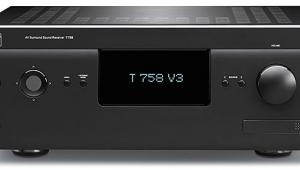Pioneer Elite SC-95 A/V Receiver Review Test Bench
Two channels driven continuously into 8-ohm loads:
0.1% distortion at 132.4 watts
1% distortion at 159.0 watts
Five channels driven continuously into 8-ohm loads:
0.1% distortion at 121.6 watts
1% distortion at 140.8 watts
Seven channels driven continuously into 8-ohm loads:
0.1% distortion at 96.7 watts
1% distortion at 108.5 watts
Analog frequency response in Pure Direct mode:
–0.10 dB at 10 Hz
–0.03 dB at 20 Hz
+1.11 dB at 20 kHz
–1.08 dB at 50 kHz.
Analog frequency response with signal processing:
–0.80 dB at 10 Hz
–0.25 dB at 20 Hz
+0.97 dB at 20 kHz
–63.87 dB at 50 kHz.

This graph shows that the SC-95’s left channel, from CD input to speaker output with two channels driving 8-ohm loads, reaches 0.1% distortion at 132.4 watts and 1% distortion at 159.0 watts. Into 4 ohms, the amplifier reaches 0.1% distortion at 230.2 watts and 1% distortion at 278.4 watts.
There was no multichannel input to measure. THD+N from the CD input to the speaker output was less than 0.014% at 1 kHz when driving 2.83 volts into an 8-ohm load. Crosstalk at 1 kHz driving 2.83 volts into an 8-ohm load was –88.71 dB left to right and –91.09 dB right to left. The signal-to-noise ratio with an 8-ohm load from 10 Hz to 24 kHz with “A” weighting was –100.53 dBrA.
From the Dolby Digital input to the loudspeaker output, the left channel measures –0.03 dB at 20 Hz and +0.89 dB at 20 kHz. The center channel measures –0.03 dB at 20 Hz and +0.83 dB at 20 kHz, and the left surround channel measures –0.03 dB at 20 Hz and +0.83 dB at 20 kHz. From the Dolby Digital input to the line-level output, the LFE channel is +0.01 dB at 20 Hz when referenced to the level at 40 Hz and reaches the upper 3-dB
